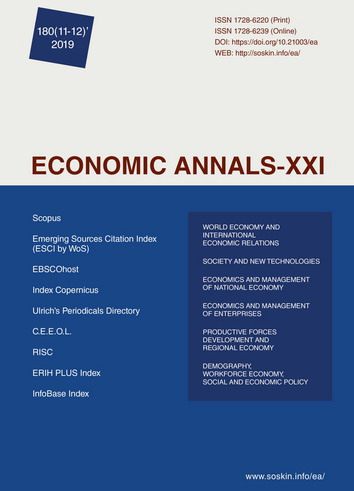Human role in the modern robotic reproduction development
Human role in the modern robotic reproduction development
Author(s): Tatyana Kolmykova, Ekaterina MerzlyakovaSubject(s): Business Economy / Management
Published by: Institute of Society Transformation
Keywords: Robotic Reproduction; Robotics; Digital Economy; Industry 4.0; Human Competitiveness; Digital Professional Competence; Management of Intellectual Systems;
Summary/Abstract: Digitalization of the economy and the fourth industrial revolution are accompanied by the blurring of the boundaries between physical, digital and biological technologies. At the same time, one of the key tasks is to create fundamentally new jobs and develop human capital as a key competitive advantage of countries that embody such economic transformations. The requirements for qualification in production vary significantly depending on the degree of digitalization and the level of development of circular principles. The introduction of any new technology means that employees will face certain challenges that create additional requirements for their skills and competencies. With regard to the human resources, our study of this issue reveals the trends in digitalization and robotization of production, generating the reduction of jobs, stagnation of wages and the growth of wage inequality on the one hand, and on the other, creating fundamentally new popular and highly paid professions. The paper is devoted to the study of the role and place of a man in the development of modern robotic production, as well as the transformation of professional competencies and requirements on the basis of flexible interaction of virtual and physical production systems that provide full adaptation of products and form new operating models. The analysis of the scale and dynamics of robotic reproduction as a key factor of such changes is carried out. Problems and prospects of industrial and service robots application are considered. The new knowledge about the role of the man in the management of modern intellectual systems is obtained. It has been concluded that the transformation of human capital and its adaptation to the challenges of digitalization and robotization of the economy remain unresolved, associated with the need to change the level of qualification and the digital competence development. The solution of investigated problems will be facilitated by an active impact on the labour market, lifelong learning based on more flexible educational systems, and additional income support.
Journal: Економічний часопис - ХХІ
- Issue Year: 180/2019
- Issue No: 11-12
- Page Range: 183-190
- Page Count: 8
- Language: English

